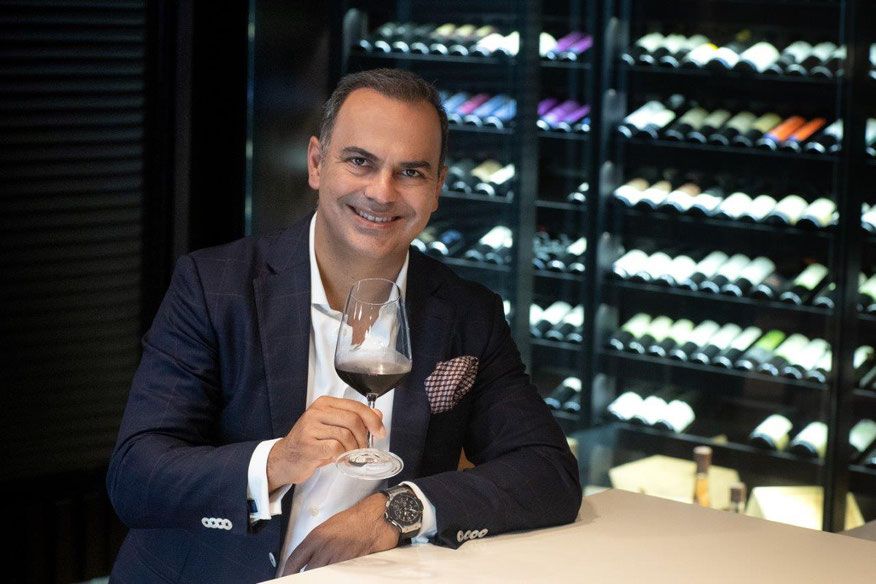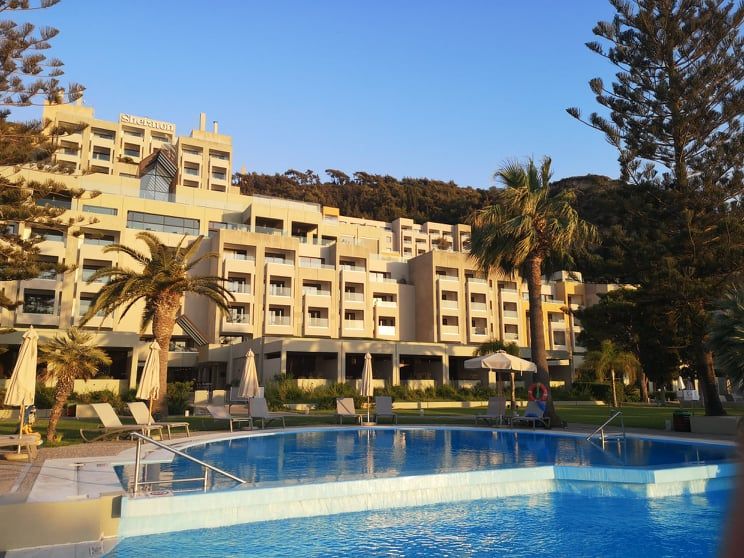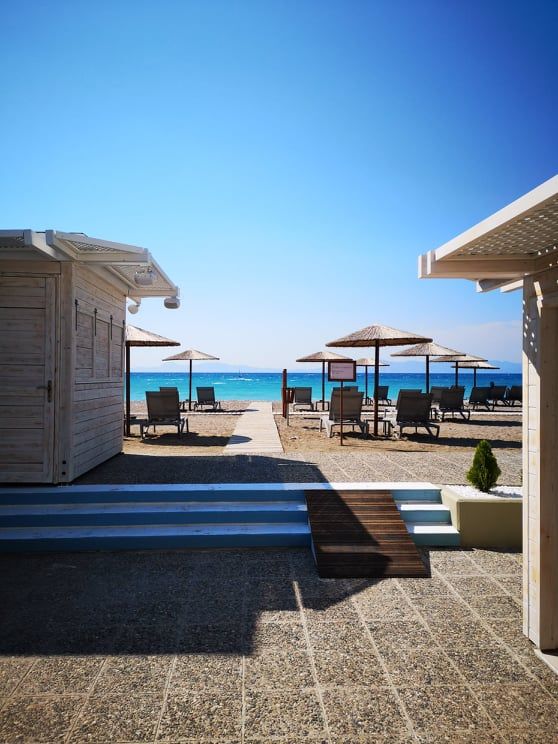one-on-one with the hospitality leader (1): viabledesign meets gregory liasides (general manager & chairman, rhodes, greece)
During the first week of July, I had the pleasure to meet with the hospitality insider and expert Gregory Liasides to discuss the challenges during the pandemic and the consequences for operating a resort hotel.

About Gregory Liasides
Gregory Liasides is the General Manager of the Sheraton Rhodes Resort and Chairman of the Greece & Cyprus Marriott Business Council and has an impressive track record of more than 20 years of experience in luxury hospitality, including assignments at the Hotel Grande Bretagne (Athens, Greece), Park Hyatt Baku (Azerbaijan) and the Hyatt Regency Thessaloniki (Greece). The Sheraton Rhodes Resort is part of Marriott International and offers more than 400 rooms mainly for leisure, but also provides conference infrastructure and can host weddings as well. Three restaurants, two bars, three pools, a spa, a 24-hour-gym and a private beach are the highlights of the resort. By car, the airport can be reached within 15 minutes, and the historic old town of Rhodes is approximately 10 minutes away.
Gregory Liasides: We did not hesitate a single minute to open the property for our valued guests. As the pandemic was/is not fully over yet, serving clients remains our mission, even if there were only a few at the beginning. As a company we have done our homework and are prepared to provide safe stays for our guests.
Gregory Liasides: Only the sauna and steam room are currently closed due to governmental restrictions, while our indoor pool is currently undergoing maintenance.
Gregory Liasides: When we had to close our property, also in 2020, we did a lot to update and improve the hotel infrastructure. So now we can offer all our guests brand new bathrooms and glass cladding balconies. In addition, we invested a lot in security to protect our guests, our employees and our partners.

Gregory Liasides: Our Marriott “Commitment to Clean” framework is based on multiple pillars to guarantee guests a healthy and secure stay, but also sets highest standards for our employees and partners. For guests it is mandatory to wear face masks in all our public spaces and facilities when they move. However, once you sit in one of our restaurants or bars, poolside or beachside, of course masks do not have to be worn. Signage reminds guests in public areas of social distancing. Optimized cleaning and disinfection standards were put in place, following hospital standards, and new food and beverage safety standards were implemented as well. Other than this, we offer self check-in and self check-out through our loyality program’s app (Marriott Bonvoy) where you can also book upcoming stays directly.
Gregory Liasides: Feedback from our guests is very positive. Guests understand why our measures make sense to protect not only them but also our employees and partners. We barely need to remind guests of wearing masks. If a guest forgets to wear a mask, we always have complimentary masks at hand.
Gregory Liasides: The situation here in Rhodes is special. We are proud to have a very good employee retention and are barely dependent on seasonal workers. The majority of employees is from Rhodes and has been working with us for many years, some of them even for more than 20 years.
Gregory Liasides: Let me answer your question by briefly explaining the elements of our F&B strategy as an example. We put big effort in offering our customers healthy and regional products. In addition to our international specialties, we have integrated regional delicatessen in our portfolio, sourced carefully from selected suppliers. Guest can experience this in a special section during breakfast but also in our lunch and dinner offerings. We have expanded this approach also to our bar menu, where you can taste for example a variety of Greek craft beers.

Recently, a senior hospitality executive from the Middle East explained me that a lot of hotels – as an outcome of the pandemic - want to change into resorts these days. They have experienced a decline in business travel and now expect a growing demand for leisure travel. Now that your hotel is a resort hotel already, what are your challenges these days?
Gregory Liasides: For sure we see that customer behavior has changed. We notice a growing trend among our guests to work a significant time during their stays, so work-life integration does not stop in front of resort hotels. Often, these guests travel with their family. This means we have to please leisure and business demands in parallel. At the moment we are planning to improve our business facilities to provide working guests with a better customer experience.
On the other hand, we are experiencing that our conference- and wedding-business will not return quickly. This is a major challenge for us and we are forced to think how we can best make use of the unused facilities. Currently, we are providing daily COVID-19-testing opportunities in one of our ballrooms, as testing became mandatory for a lot of our guests due to local and international regulations.
The last 1.5 years made it crystal clear: Managing a hotel or resort during these times requires a lot of flexibility. I want our guests to experience this flexibility including the improved services as my overall aspiration is to have delighted guests who will become true ambassadors of our property.
Gregory Liasides: For me it is essential to measure and improve the customer satisfaction constantly. I am happy to have reached a very good ranking among all other Sheraton properties worldwide but the best benchmark is the individual guest. We always do our best to quickly find solutions for our guests’ problems. In addition, we are analyzing guest feedback from complaints, suggestions for improvement and from questionnaires that are filled out after the stay. All the information is put on file and is discussed in regular meetings with my team. This information is essential for us to improve the guest experience, provides us with feedback on current and future demands and is very often the source for innovation.
Gregory Liasides: We see a strong shift in our sales channels. Ten years ago, the tour operator business was our strongest sales channel. Today, we have to concentrate on a multi-channel strategy. Online travel agencies (OTAs) have become very powerful in the meantime. My advice is to cooperate with OTAs on a partnership level and to align strategies so that the right mix of guests can be jointly attracted: Guests, that are also open to experience complementing services offered by our resort, to make their stay even better than expected. At the same time, offering direct booking opportunities should not be forgotten, where you have more touchpoints with clients and can help them to experience unique services and a better value.
Gregory Liasides: COVID-19 has made us a better team. We have become more creative, more flexible, and more client centric. This is what I am grateful for and what makes me an optimist for the future!
Gregory Liasides: It was a pleasure to share my experiences with you.
teilen